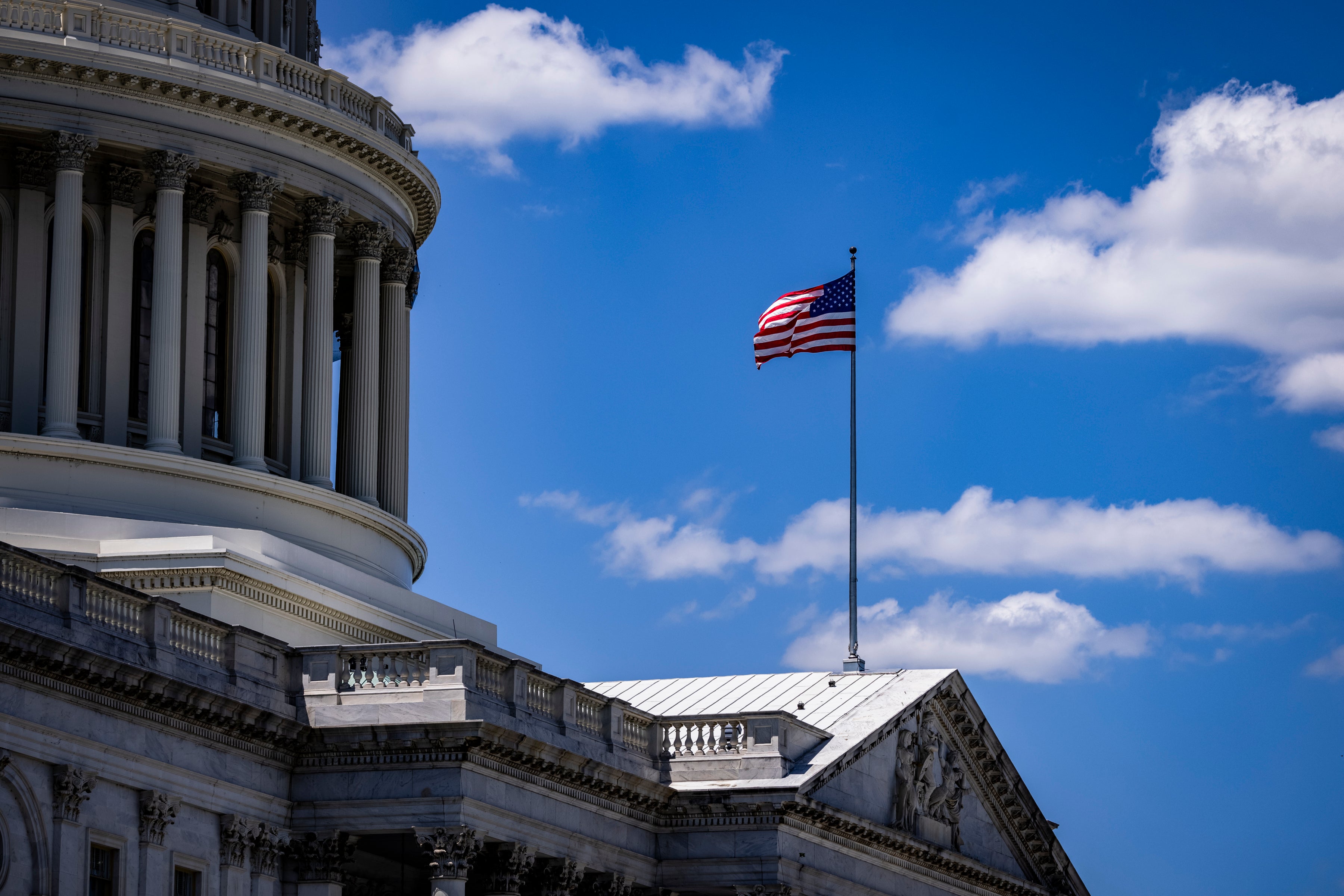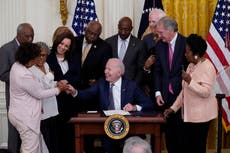Juneteenth: Will it become a federal holiday and who will have the day off?
Commemorated annually since 1866, event recognising freedom from slavery is now a federal holiday

Following Joe Biden’s signature on the bill, Juneteenth became the nation’s 11th federal public holiday, after congressional passage of a measure that formally recognises a day that commemorates the end of slavery and emancipation of African Americans in the US.
Democratic US Rep Sheila Jackson Lee of Texas has led recent efforts to make Juneteenth a national holiday, adding to the list of federal holidays for the first time since the addition of Martin Luther King Jr Day in 1983.
On 13 June, the US Senate unanimously approved the Juneteenth National Independence Day Act, establishing 19 June as a legal public holiday.
The measure was co-sponsored by Texas Senator John Cornyn, a Republican.
Republican Senator Ron Johnson, who blocked its passage in 2020, lifted his opposition in 2021.
Following the bill’s approval in the House of Representatives on 16 June, President Joe Biden signed it into law on 17 June.
Effective immediately, as a federal holiday, federal employees will receive a paid day off on 19 June, or on the nearest Friday or Monday.
It will join a list of legal public holidays that includes MLK Jr Day, New Year’s Day, Washington’s Birthday, Memorial Day, Independence Day, Labor Day, Columbus Day, Veterans Day, Thanksgiving and Christmas.
In recent years, some state and local governments have declared it a holiday, and a growing number of companies, universities and other institutions have recognised the day with remembrance events and as a paid holiday.
The day marks the arrival of roughly 2,000 Union Army soldiers in Galveston, Texas on 19 June, 1865 with news that enslaved people were now free.
Although the Emancipation Proclamation was issued on 1 September 1862, it didn’t go into effect until 1 January 1863. The 13th Amendment to the US Constitution, which formally abolished slavery in the US, wasn’t passed by Congress until 31 January 1865. It was ratified later that year.
The first Juneteenth celebration was observed on 19 June, 1866, when formerly enslaved people in Texas gathered to commemorate their emancipation. The event spread across the US, becoming the nation’s oldest tradition that recognises the abolition of slavery and freedom of African Americans.
The Fourth of July – which marks the signing of the Declaration of Independence in 1776 – is recognised nationwide just a few weeks later.
In his “What to the Slave Is the Fourth of July?” address in 1852, abolitionist Frederick Douglass noted the nation’s hypocrisy of celebrating Independence Day while imposing a brutal regime of slavery.
Juneteenth was not formally recognised in Texas until 1979. It was the first state to do so. It is now recognised on a state level in some form in most states.
Join our commenting forum
Join thought-provoking conversations, follow other Independent readers and see their replies
Comments


Bookmark popover
Removed from bookmarks